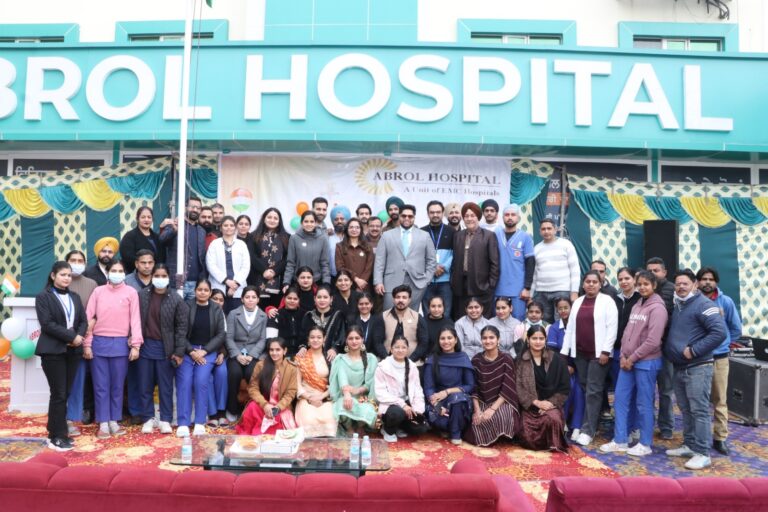PMC Hospital, Sujanpur (A Unit of EMC Hospitals): Restless Legs Syndrome – Causes, Symptoms, Diagnosis, and Treatment By Dr. Ishtiyaq
Sujanpur, PMC Hospital: In today’s fast-paced lifestyle, increasing mental stress has given rise to several health problems—one of them being Restless Legs Syndrome (RLS), commonly referred to as leg restlessness. It is a neurological disorder characterized by an uncomfortable sensation in the legs, such as tingling, pulling, burning, or a crawling feeling inside. This uneasiness is especially noticeable during rest or while trying to sleep at night, causing an uncontrollable urge to move the legs. As a result, patients experience disturbed sleep, fatigue, irritability, and poor concentration throughout the day.

According to Dr. Ishtiyaq, Senior Neurologist at PMC Hospital, Sujanpur, Restless Legs Syndrome is not a simple restlessness issue but a complex condition linked to the brain and nervous system. It can occur at any age but is more common among middle-aged and elderly individuals. Sometimes the condition is temporary, while in other cases, it may persist for years. The major causes include iron deficiency, nerve weakness, kidney disorders, pregnancy, and side effects of certain medications. In some cases, it can also be hereditary, meaning if a family member has had it, future generations may also show symptoms.
The symptoms of RLS usually develop gradually and worsen over time. Initially, a person may feel mild tingling or uneasiness in the legs, but later it can become unbearable—especially at night or while resting. The constant restlessness and lack of proper sleep lead to mental exhaustion and reduced quality of life.
Diagnosis of Restless Legs Syndrome is primarily based on symptoms and medical history. Although there is no specific test for RLS, doctors may recommend blood tests, sleep studies, or neurological examinations. Blood tests help identify deficiencies of iron, folic acid, or vitamin B12, while sleep studies monitor body activity during sleep. If a nutritional deficiency or nerve-related problem is detected, treatment is customized accordingly.
Dr. Ishtiyaq explains that RLS can be effectively treated if diagnosed on time. Treatment involves lifestyle modification, dietary improvements, regular exercise, and in some cases, medication. Patients are advised to avoid caffeine, nicotine, and alcohol, as these can worsen symptoms. To correct iron deficiency, iron supplements or iron-rich foods such as spinach, lentils, fish, and dry fruits are recommended. To manage stress, yoga, meditation, and deep-breathing techniques can be highly beneficial.
Dr. Ishtiyaq emphasizes that Restless Legs Syndrome should not be ignored, as untreated cases can lead to severe sleep deprivation, depression, and reduced productivity. Though it may appear minor, it deeply impacts both mental and physical health. With timely treatment and proper medical guidance, patients can lead a completely normal and healthy life.
He appeals to the public: if anyone experiences frequent restlessness, tingling sensations, or sleep disturbances due to leg discomfort, they should consult a specialist without delay. Awareness and early diagnosis can effectively control the disease. Maintaining a healthy lifestyle, balanced diet, and stress management play a key role in prevention.
Dr. Ishtiyaq concludes —
“Never ignore your body’s signals. Paying attention in time can not only control this condition but also significantly improve your quality of life.”





